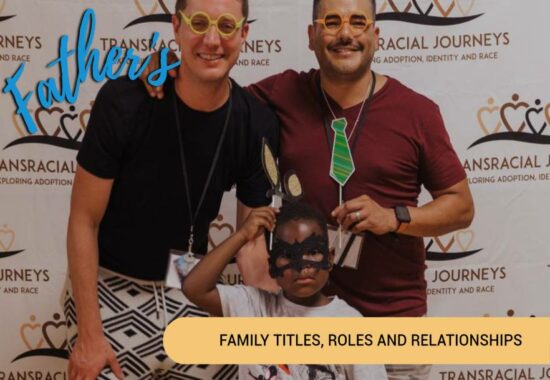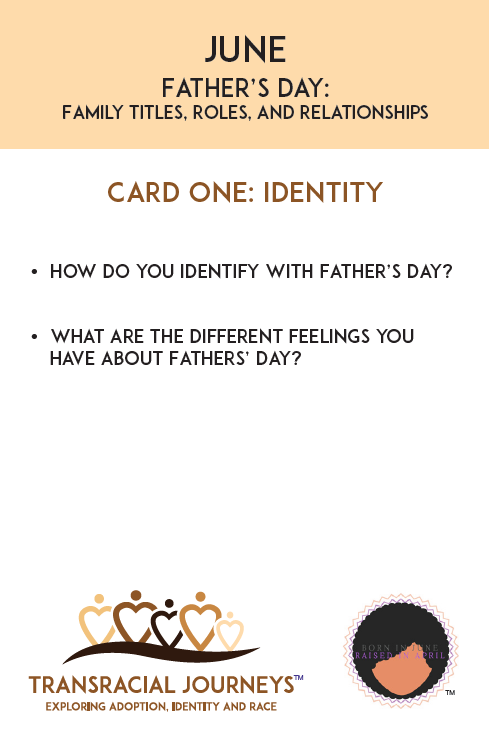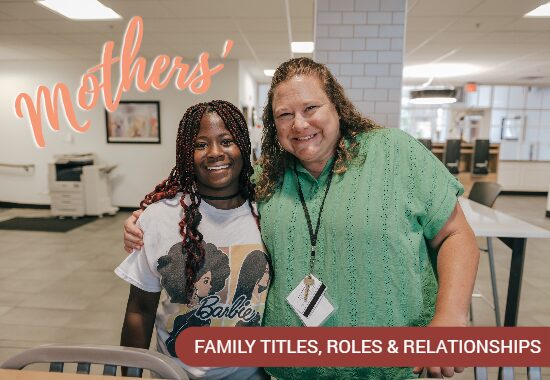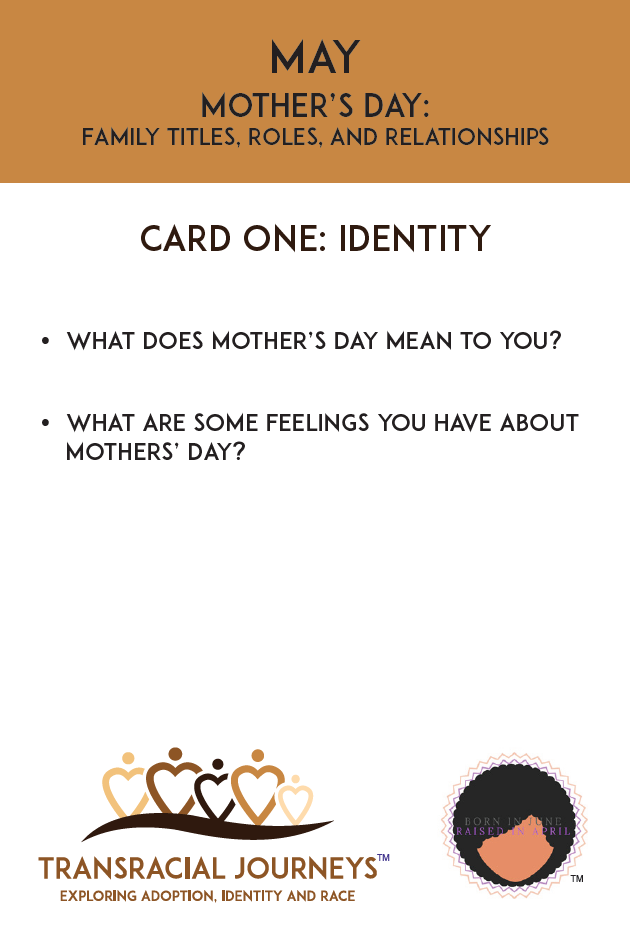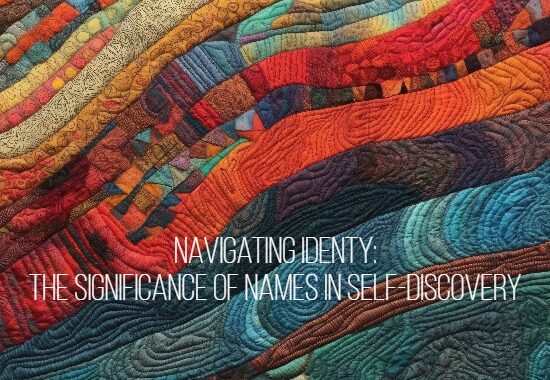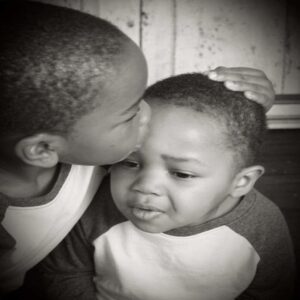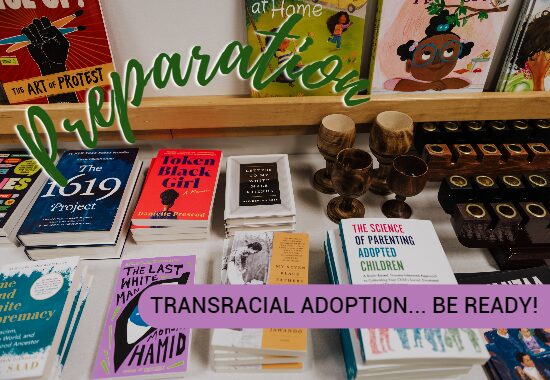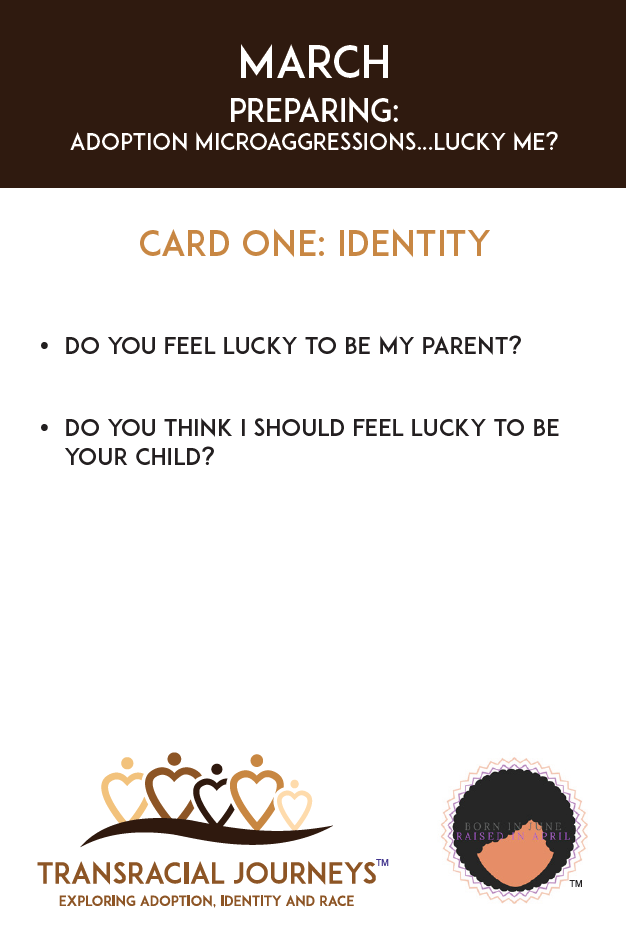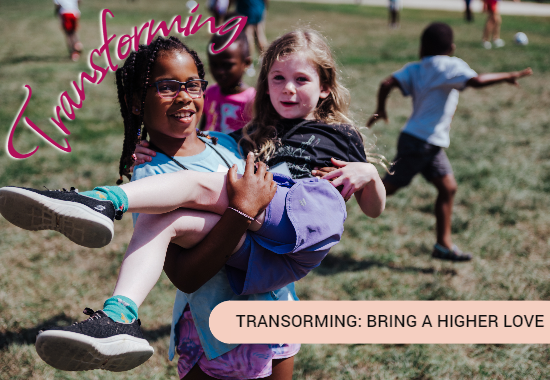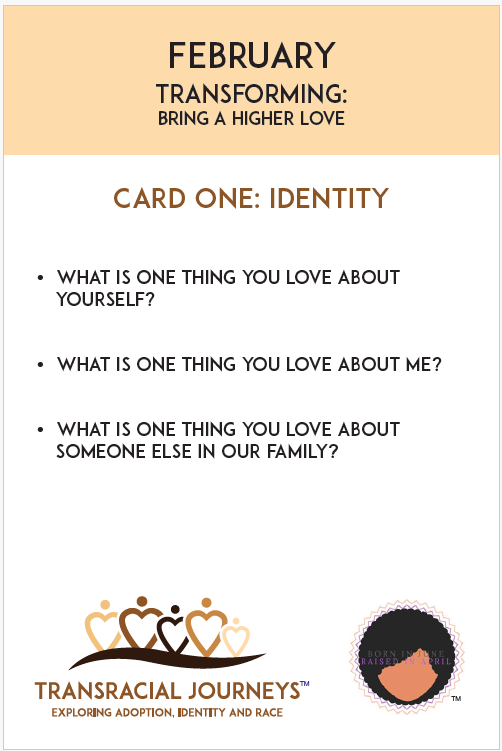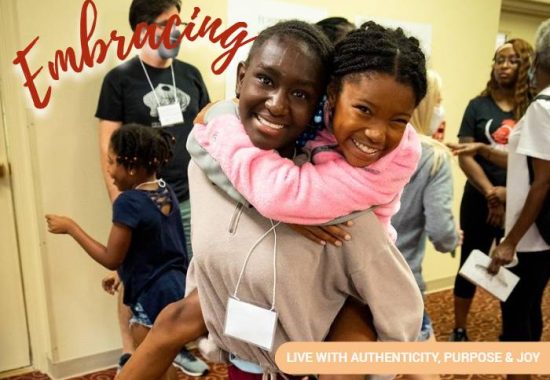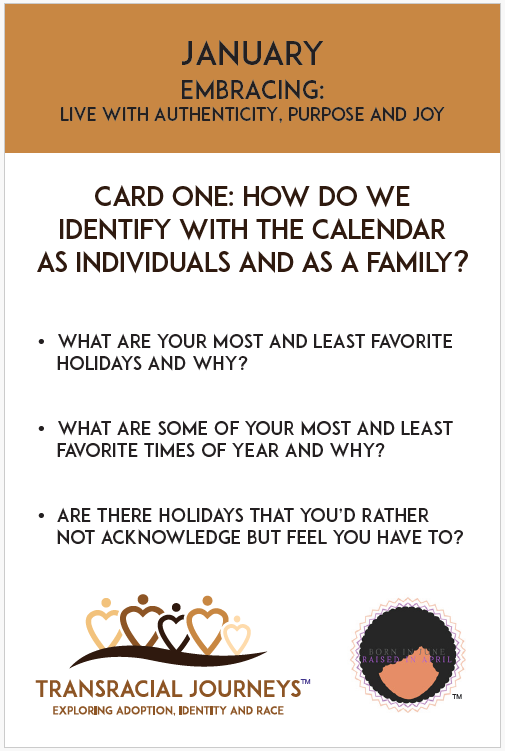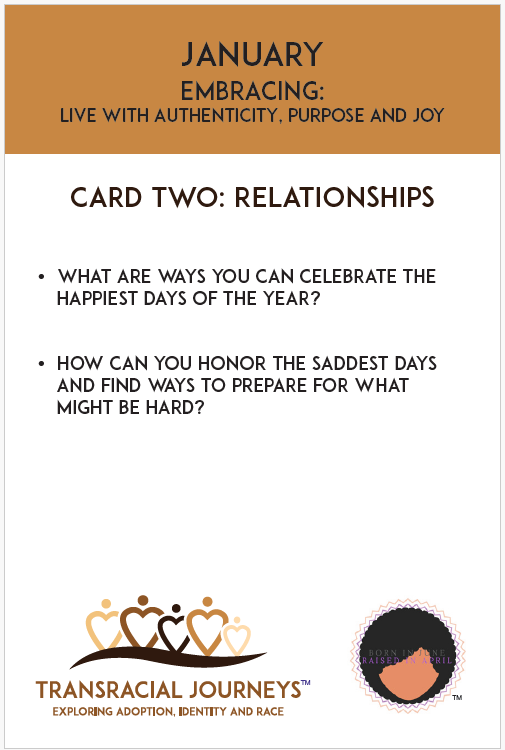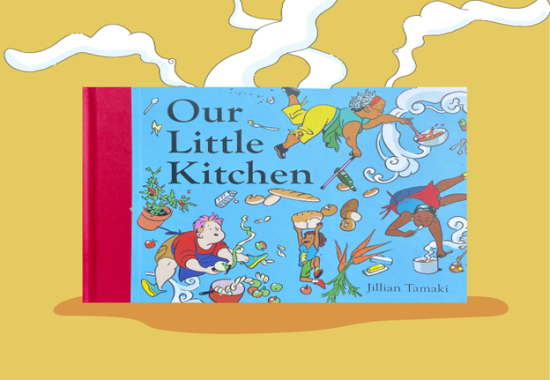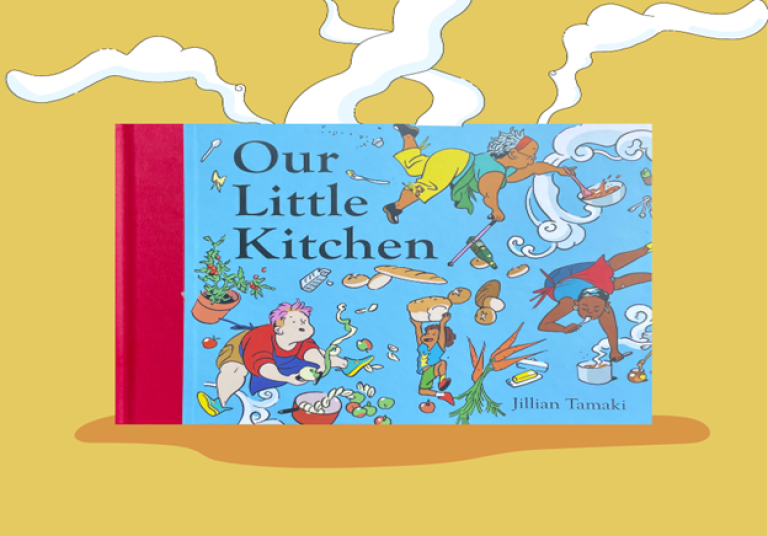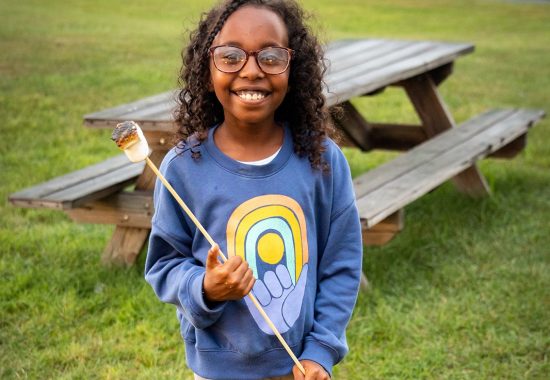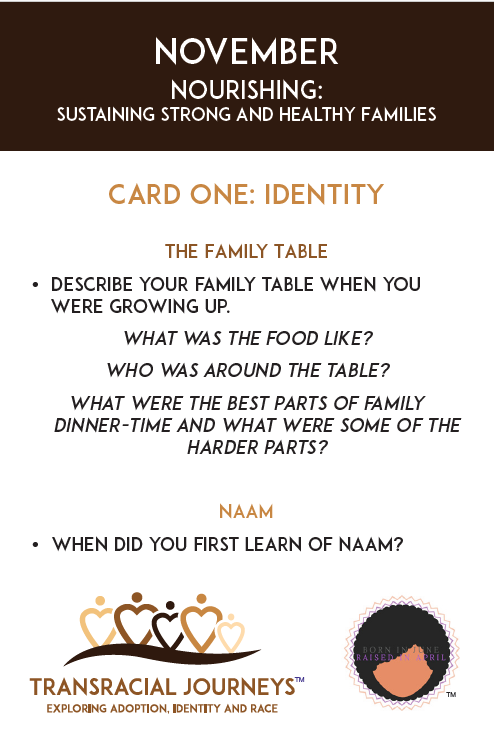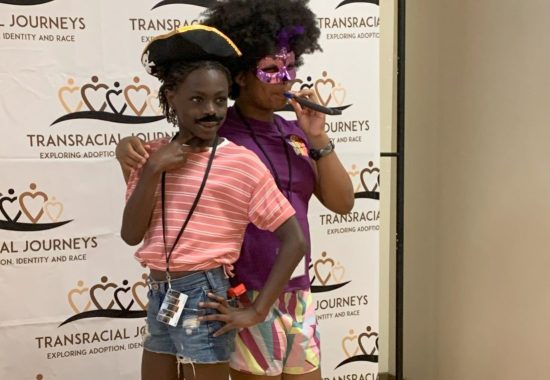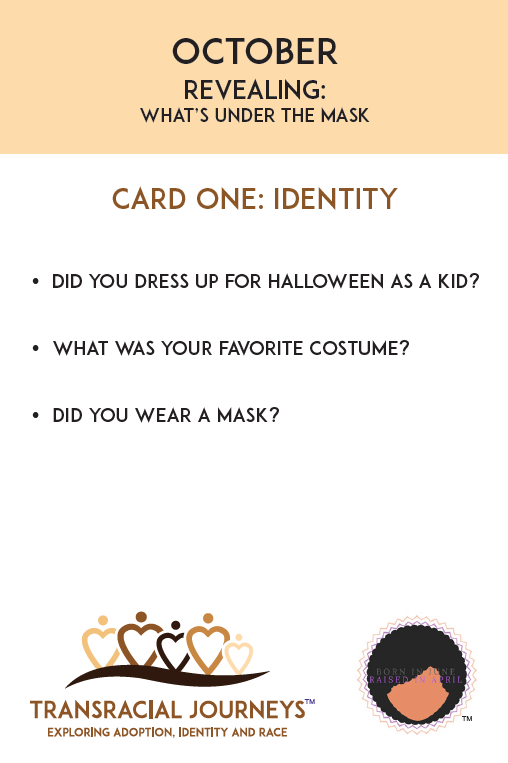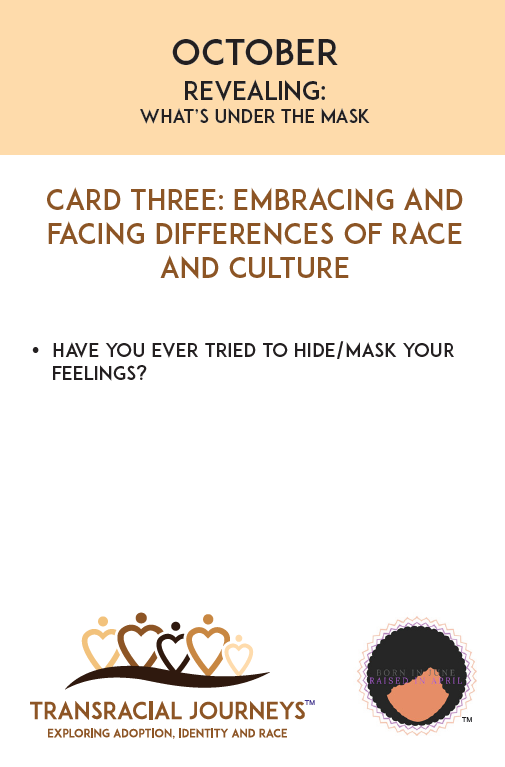Officially celebrating Father’s Day came a bit later than Mother’s Day and there are many of the same things to think about and reflect on as we come to this day that is all about acknowledging the fathers and father figures in our lives. In adoption father’s of origin or birth/first fathers are often thought of after mothers. Sometimes there can be even less information about fathers and it can be harder to open up a conversation about the role these men play in the lives of adopted children and as part of the extended family.
Read last month's post, Mother’s Day: Family Titles, Roles, and Relationships for more insight on this subject from multiple perspectives.
June Pro-Tip to Foster Conversations About Transracial Adoptions
At Transracial Journeys we send our families conversation cues each month, from our Transracial Journeys card deck. The card deck contains three cards for each month, designed for the children to ask their parents. Below are the questions for June. Before letting your child get started, prepare by reading the parent pro-tip, from the Parent Guide, each month.
June Pro-Tip for Parents: As with May it is important to spend some time reflecting on how you hold Fathers’ Day for yourself and how you might be better equipped to hold your child/children as they experience their own version of the holiday. Best to have planned time for conversation with trusted loved ones and/or community members before, during, and after your family conversations.
CARD ONE: IDENTITY
• How do you identify with Fathers’ Day?
• What are the different feelings you have about Fathers’ Day?
CARD TWO: RELATIONSHIPS
• How do we honor Father’s Day in our family?
• Can we acknowledge and celebrate more than one father?
CARD THREE: EMBRACING AND FACING DIFFERENCES OF RACE AND CULTURE
• Do different cultures celebrate Father’s Day?
• Are there different ways Fathers are honored around the world?
This post is from our June, 2024, e-newsletter. If you would like to get our newsletter in your inbox each month, please subscribe. You will get invitations to our Parent Meet-Up each month, a virtual meeting to act as a transracial adoption support group - sharing issues, ideas and strategies for creating a culture of communication and curiosity in your home, as well as monthly card prompt to keep the conversations about race, adoption, family, love and relationships front and center all year long. And lastly, you'll always be made aware of important dates for Transracial Journeys Family Camp.

